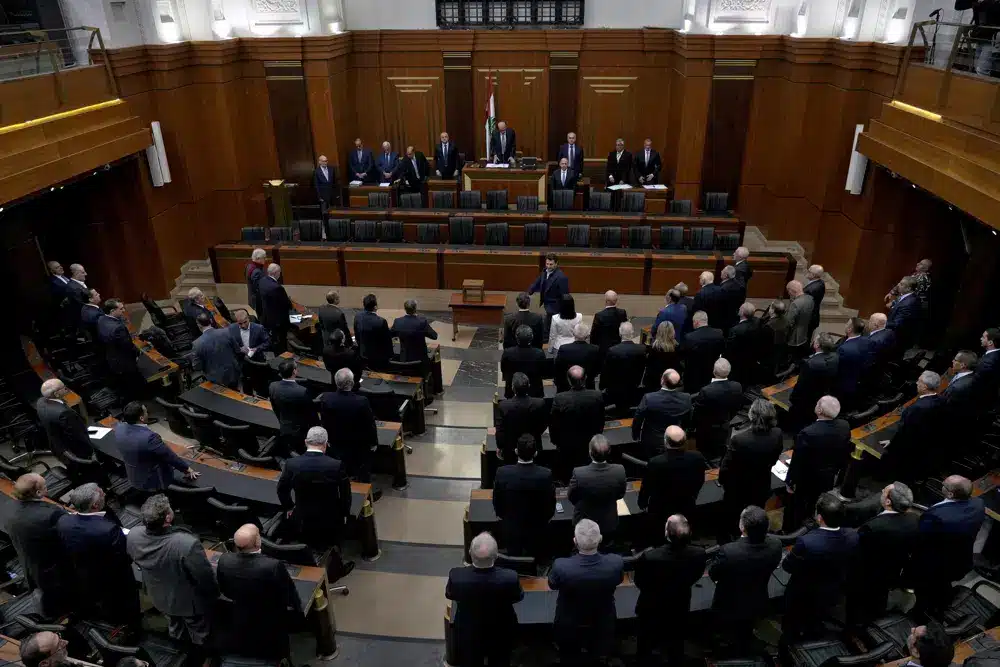Lebanon’s political landscape, characterised by an array of political parties and alliances, can often appear as a labyrinth to the uninitiated observer. This complexity is not merely a matter of diversity but an embodiment of Lebanon’s rich and multifaceted cultural, religious, and historical layers.
Future Movement
In the turbulent world of Lebanese politics, the Future Movement, led by Saad al-Hariri, a prominent Sunni figure and incumbent Prime Minister since 2016, carves out a distinctive place. Al-Hariri found himself thrust into the political arena following the assassination of his father, Rafik al-Hariri, in 2005. Following the Beirut port explosion in August 2020, Hariri was tasked with forming a government in October, but unable to form a government, he resigned as prime minister-delegate in July 2021 marking the suspension of his political career in January 2022.
Hezbollah
As a key player in Lebanon’s political field, Hezbollah, a creation of Iran’s Revolutionary Guards in 1982, boasts significant influence. Its power has only magnified since 2012, owing to its active involvement in the Syrian war, where it fights in support of President Bashar al-Assad.
Free Patriotic Movement
The Free Patriotic Movement (FPM) offers another intriguing dimension to the Lebanese political scene. Michel Aoun, a Maronite Christian politician and former army commander, founded the FPM. Interestingly, Aoun was also at the helm of one of two contending governments during the 1975-90 civil war climax.
In a testament to Lebanon’s convoluted political dynamics, Aoun became president in 2016, while Hariri assumed the prime ministerial role. Aoun’s son-in-law, Gebran Bassil, currently leads the FPM, which also happens to be an ally of Hezbollah. Aoun was elected president in 2016 until October 2022 as Parliament failed to agree on his successor leaving Lebanon with a highly polarised political environment.
Shiite Amal Movement
The Shiite Amal Movement, previously a civil war rival of Hezbollah, is the largest Shia party in Parliament currently boasting 14 representatives compared to Hezbollah’s 13. Led by Nabih Berri, Speaker of the Parliament since 1992, the Amal Movement also has close ties to Assad.
Progressive Socialist Party
The Progressive Socialist Party (PSP), under the leadership of Walid Jumblatt, represents the Lebanese Druze minority. Inheriting his position from his assassinated father, Kamal, Jumblatt was a prominent figure during the civil war. Currently, he is gradually transferring his authority to his son, Taymour.
Lebanese Forces
The Lebanese Forces (LF), led by Maronite Christian politician Samir Geagea, evolved from a powerful civil war militia. Geagea, the only Lebanese militia leader to have served prison time for civil war atrocities, remains a formidable Christian adversary of Hezbollah.
Kataeb Party
The Kataeb Party, or Phalange Party, helmed by Maronite Christian politician Sami Gemayel, adds another layer to the intricate web of Lebanese politics. Sami Gemayel assumed leadership following the assassination of his brother, Pierre, in 2006, during a spate of murders targeting opponents of Syrian influence in Lebanon.
Marada party
Lastly, the Marada party, under Maronite Christian politician Suleiman Franjieh, a staunch ally of Hezbollah and a friend of Syrian President Bashar al-Assad, completes the diverse Lebanese political spectrum.
Image Credit: AP Photo/Bilal Hussein



















